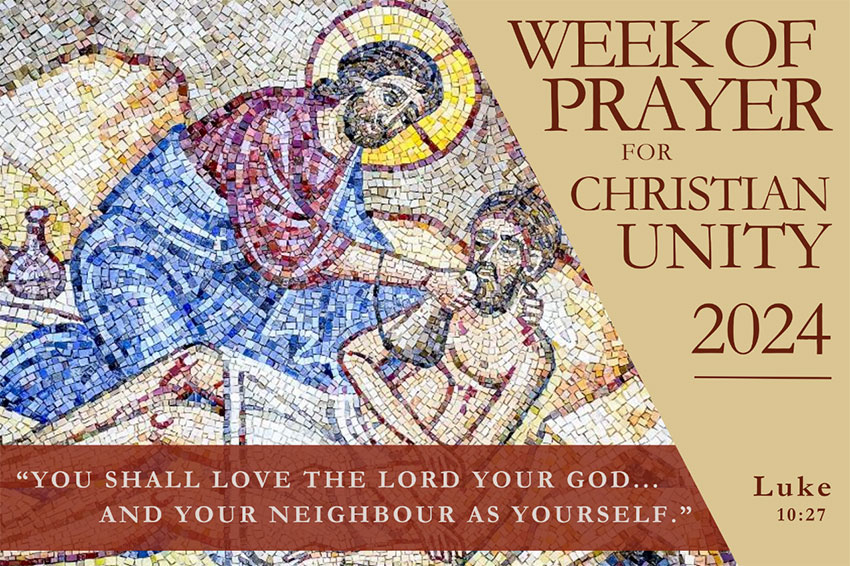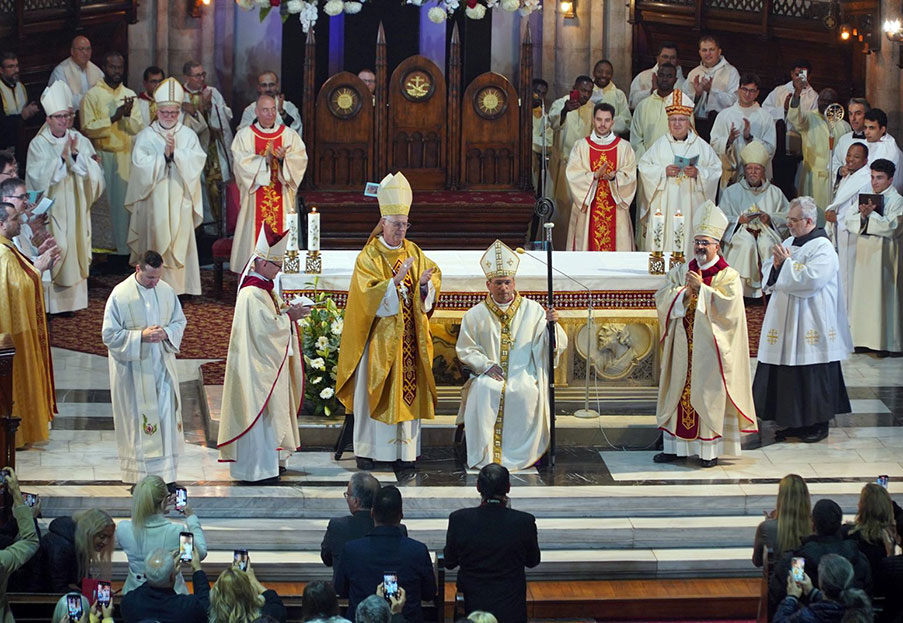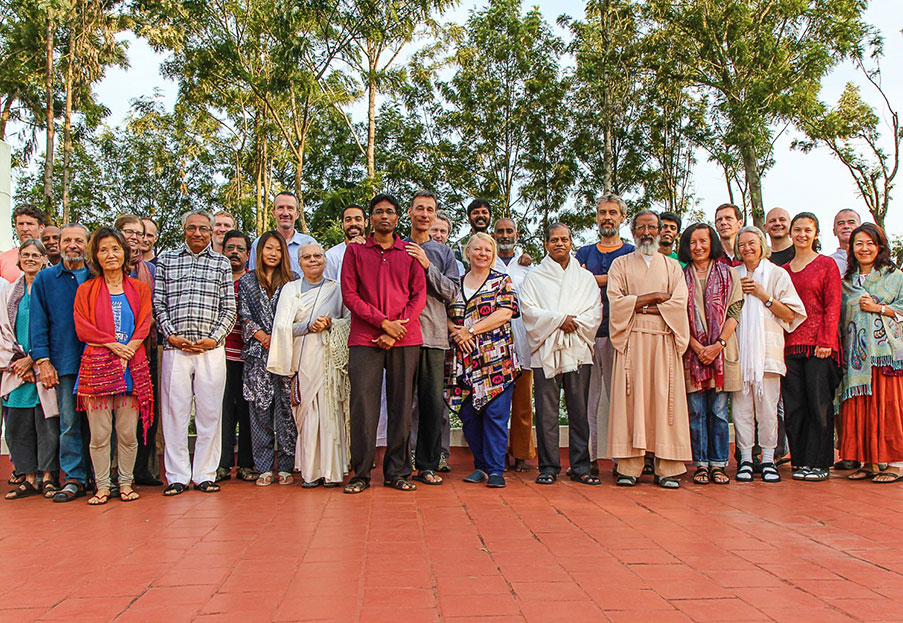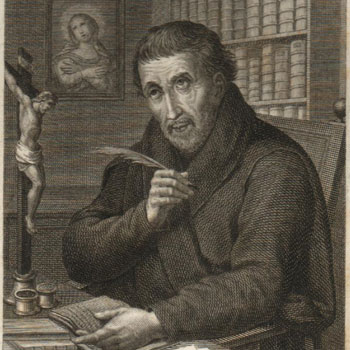Week of Prayer for Christian Unity
By Carlo Pertusati*
“You shall love the Lord your God ... and your neighbour as yourself” (Lk 10:27): the theme of the 2024 Week of Prayer for Christian Unity (WPCU) points to the DNA of Christian faith; as stated in the handbook prepared from material provided by an ecumenical group in Burkina Faso, coordinated by the local community of Chemin Neuf. In just these few lines we can start to see that the process leading to the choice of the theme and material for the WPCU involves multiple steps, each of which has a meaning that we will try to explain.
A bit of history
The WPCU is derived from the Octave of Prayer for Christian unity introduced by Paul Wattson, an Episcopalian minister who later converted to Catholicism. He chose the dates by placing them between two liturgical feasts related to the princes of the apostles: 18 January commemorates the chair of St Peter in Antioch and the 25th celebrates the conversion of St Paul. This was an internal initiative of the Catholic Church, which was relaunched in 1925 by Abbé Paul Couturier.
Since 1975 the process has started as follows: a local organisation is appointed, which then submits the texts to the preparatory commission, which then examines those texts a year and a half before the SPUC, gathering for a few days in a place of significance (e.g. Bossey, Grandchamp, Taizé) to complete their work. Last September, the preparatory commission for the WPCU of 2025 met in Bose, Italy: the sisters and brothers of the monastic community were entrusted with the drafting of the texts, with special deference to the theme “Do you believe this?” (Jn 11:26) and the symbol of Nicaea, 1,700 years after the first ecumenical council in history.
Since
2004, the material has been produced in English and French and published by national
or international groups. The texts almost always lead to impactful decisions
wherever they are distributed. In Italy, for example, the material is
translated and further enriched by the Centro
Pro Unione di Roma (of the Atonement Franciscans) and published in
collaboration with Paoline Editoriale
Libri. This year the introduction was written by the Regional Council of
the Churches of Campania. The next step for dissemination are the dioceses, parishes,
associations, communities, monasteries and spontaneous groups, prompted by
local ecumenical bodies. These groups organise the meetings, which should arise,
and not only be conducted, in an ecumenical way.

The Week of 2024
Returning to this year’s theme, the verse/title is taken from the Gospel passage of the Good Samaritan (Lk 10:25-37), as read by the local group in Burkina Faso in the light of the horrors their country is experiencing: extreme poverty overlaid by a crisis that threatens the security of people and society, following a serious jihadist attack in 2016. Many churches have been, and are, the target of armed attacks, resulting in deaths and kidnappings.
There is a growing dialogue between Christians and Muslims (26% and 64% of the population respectively) and ecumenical conversations (20% Catholics and 6% Protestants). Some Church Fathers saw in “the man descending from Jerusalem to Jericho” the image of Adam (humanity) descending from heaven to earth. He is attacked by robbers, the earthly powers, but saved by the Good Samaritan, the image of Christ, who heals his wounds and leaves him in the inn of the Church, awaiting his return (the Parousia).
The Christians of Burkina Faso, who prepared the material for the WPCU, bear witness to their commitment to the search for peace and reconciliation, which can only come from love. The inn of the Church is also the place where God wants to give unity to his people. In this regard, an important initiative has been the translation of the French ecumenical text of the Bible into local languages, to be able to read, pray and share the Word among Christians of different ethnic groups, often divided even theologically, like Jews and Samaritans at the time of Jesus.
Two traditional African proverbs, quoted in the material, emphasise not only the importance of not deluding oneself about the results already achieved: “The tree must not hide the forest”; but also the encouragement to not lose hope while continuing to work for pacification: “No matter the nature or duration of the fight, the moment of reconciliation will come”.
Each year a sign is proposed for ecumenical celebrations: for 2024 a representative of each community hosting a meeting is invited to offer water placed in a gourd to the representatives of the other Churches, imitating the gesture made by Abraham at the oaks of Mamre. In Burkina Faso, the emptied and dried gourd is used as a container for food and drink, and when a guest arrives, water is offered to him or her to refresh himself or herself before conversing about the reason for the visit.
After centuries of divisions, the ecumenical movement responds with initiatives of various kinds and at various levels, and we must not forget that each person, in his or her own reality, can contribute to the cause of Christian unity with daily gestures of hospitality, trust, reconciliation, collaboration...
*Carlo Pertusati is a founding member of the
Italian Association of Teachers of Ecumenism.Among
his publications: “Scambio di doni. L'ecumenismo dei martiri e dei santi”
(Exchange of gifts.The ecumenism of martyrs and saints) and “50
piccole storie di Chiese divise in cerca di unità” (50 little stories
of divided Churches in search of unity).











